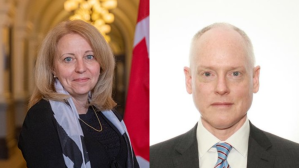Democracy’s on its way to Iraq
The United States is engaged in what President George W. Bush has called a “generational challenge” to instill democracy in the Ar...

The United States is engaged in what President George W. Bush has called a “generational challenge” to instill democracy in the Arab world. The Bush administration and its defenders contend that this push for Arab democracy will not only spread American values but also improve US security. As democracy grows in the Arab world, the thinking goes, the region will stop generating anti-American terrorism… But this begs a fundamental question: Is it true that the more democratic a country becomes, the less likely it is to produce terrorists and terrorist groups?… Unfortunately, the answer appears to be no. Although what is known about terrorism is admittedly incomplete, the data available do not show a strong relationship between democracy and an absence of or a reduction in terrorism…
Even if democracy were achieved in the Middle East, what kind of governments would it produce? Would they cooperate with the United States on important policy objectives besides curbing terrorism, such as advancing the Arab-Israeli peace process, maintaining security in the Persian Gulf, and ensuring steady supplies of oil? No one can predict the course a new democracy will take, but based on public opinion surveys and recent elections in the Arab world, the advent of democracy there seems likely to produce new Islamist governments that would be much less willing to cooperate with the United States than are the current authoritarian rulers. The answers to these questions should give Washington pause… Rather than push for quick elections, the United States should instead focus its energy on encouraging the development of secular, nationalist, and liberal political organisations that could compete on an equal footing with Islamist parties. Only by doing so can Washington help ensure that when elections finally do occur, the results are more in line with US interests…
In a widely cited study of terrorist events in the 1980s, the political scientists William Eubank and Leonard Weinberg demonstrate that most terrorist incidents occur in democracies and that generally both the victims and the perpetrators are citizens of democracies… In his recent book, Dying to Win: The Strategic Logic of Suicide Terrorism, Robert Pape finds that the targets of suicide bombers are almost always democracies, but that the motivation of the groups behind those bombings is to fight against military occupation and for self-determination. Terrorists are not driven by a desire for democracy but by their opposition to what they see as foreign domination.
The writer is associate professor of Political Science at the University of Vermont. Excerpted from ‘Foreign Affairs’, September/October 2005
Photos



- 01
- 02
- 03
- 04
- 05




























